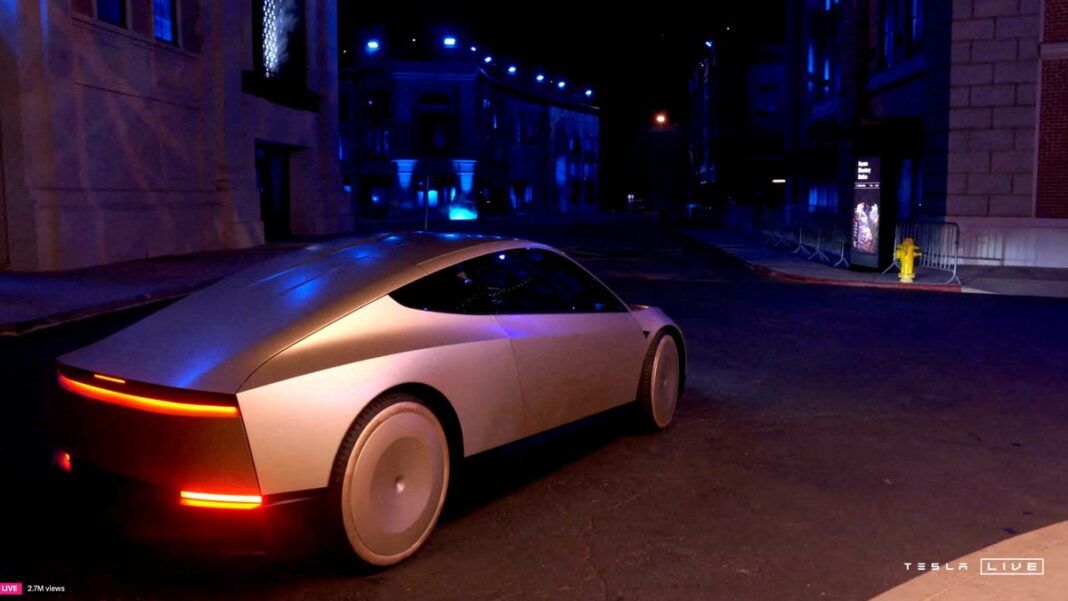Tesla presents Cybercab autonomous vehicle during ‘We, Robot’ event
Tesla introduced a self-driving taxi at their “We, Robot” event on Thursday night, marking a significant step towards the future of the electric vehicle industry, which CEO Elon Musk believes will fuel long-term growth.
The two-door vehicles showcased on the Warner Brothers lot in Burbank, California, are designed without steering wheels or pedals. Musk claimed these fully autonomous cars would be “10 times safer than a human.”
The event featured a total of 20 Cybercabs and 30 self-driving Model Y cars. Musk indicated that he anticipates starting fully autonomous driving in California and Texas by “next year,” with production of the Cybercab set to begin in 2026, priced below $30,000.
In addition to the Cybercab, Tesla also introduced a Robovan and provided updates on their Optimus personal robot project.
Musk argues that this autonomous technology will help minimize the need for parking in urban areas and allow individuals to make better use of their time on the road.
The Cybercab launch was initially planned for August and has been anticipated by Musk since 2019. This announcement comes shortly after a Reuters report highlighted Musk’s vision for a Tesla-operated autonomous ride service, utilizing cars owned by customers when not in use.
Musk aimed to launch robotaxis in 2020
Back in April 2019, Musk had high hopes for Tesla robotaxis to be fully functioning by 2020. The company forecasted that each driverless vehicle could last 11 years and travel 1 million miles, generating an annual profit of $30,000 for Tesla.
Musk also detailed that the vehicles will come with a ride-sharing app akin to similar services like Uber and Airbnb. Currently, regulators in the U.S. and China have only sanctioned self-driving cars for limited and testing purposes on public roads.
The car manufacturer is dealing with multiple lawsuits and investigations concerning accidents involving its existing autopilot and Full Self-Driving systems, which the company attributes to driver inattention.
Tesla fell short of delivery projections
Tesla’s latest third-quarter delivery report disappointingly missed Wall Street projections.
According to Electrek, analysts had anticipated around 463,000 deliveries for the quarter, but Tesla managed to deliver 462,890.
The Model 3 and Model Y accounted for nearly all deliveries, totaling almost 440,000 units for those models in the quarter, while the other models combined just under 23,000 deliveries.
(This story has been updated with new information.)

